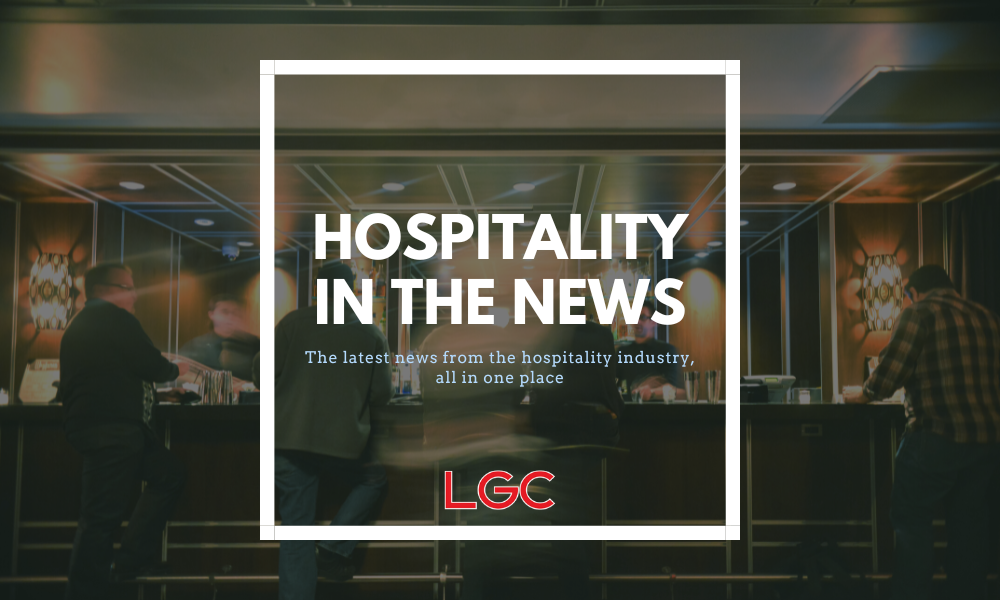Every week we comb through the news to find employment trends affecting the hospitality industry so you don’t have to. This week’s topic: what retail can learn from hospitality.
You might not realize, but the retail and hospitality industries are closely related. Both industries prioritize creating a great experience that fosters return customers. Additionally, retail and hospitality employees both require a similar set of skills such as good communication, reliability, and the ability to work a sometimes-strenuous job. Not to mention the fact that both sectors were faced with similar challenges during the pandemic. But even though they provide a service, retail stores aren’t technically considered part of the hospitality industry despite their similarities.
Besides being more similar than we think, retail businesses can learn a few things from hospitality businesses (and vice versa). By referencing some of the standards put in place in hospitality, retail stores may be able to improve on their own operations. Below we’ll list how retail can learn from the hospitality industry to create a better experience for customers.
What Retail Can Learn from Hospitality
Retail stores include a wide array of businesses ranging from small boutiques to big brand names like Target. Though originally thought of as brick-and-mortar establishments, the online shopping boom taken place over the last several years has encouraged more businesses to sell their products on the internet. According to the Bureau of Labor Statistics, there are over one million retail stores across the country. Retail can learn from hospitality, but what exactly can they learn?
Create a more personalized feeling
Besides providing a service, the main purpose of any bar, restaurant, or hotel is to create a great guest experience that leaves customers wanting more. Whether it be more of the product or more of the feeling they have when they visit. Traditionally retail stores prioritize efficiency and the ability to get customers in and out – especially at the big-name retailers. But connecting with consumers is an impactful way to help make sure they return to your business or at least share their positive experience with friends.
Though we understand the importance of budgeting (especially during a pandemic), consider implementing more employees to work on the floor. This team can help greet customers, ask or answer any questions, or just lend a smile and wave when someone needs it.
Quality over quantity
It’s possible someone may continue to shop at your business despite not having a very positive experience. Regardless of the reason, this consumer might be sharing their poor experience with potential customers, limiting new business. That’s why it’s important to prioritize quality over quantity. It’s not good enough to just have customers return – they need to have a positive experience as well. Think about one of your favorite restaurants, bars, or coffee shops. What do they do that makes your time there so special? Do they remember your name or favorite drink? Consider what qualities they have and implement it within your own team.
Upselling and recommendations
Part of the responsibility of hospitality and food service staff is to upsell menu items and provide their own recommendations to guests. By suggesting menu items that are more expensive or have unique add-ons (think adding a lobster tail to a steak), employees can help bring in more revenue for the business. Plus, it helps grow that connection between the employee and the customer.
At some retail stores, it’s customary (and sometimes necessary) to provide recommendations. But it’s not as likely to see an employee recommending the customer purchase a better brand of vacuum cleaner. While we’re not suggesting you need to station employees all over the store to share their opinions on products, it’s a good idea to find a middle ground where employees can share their true and honest feedback in a way that connects with customers.
The idea of the hospitality and retail industries working together isn’t new. Think about places like bookstores that have coffee shops or gyms with cafés. Retail can learn from hospitality and vice versa and both industries will benefit.
Don’t forget to subscribe to the LGC blog so you don’t miss part two, What Hospitality Can Learn from Retail.

